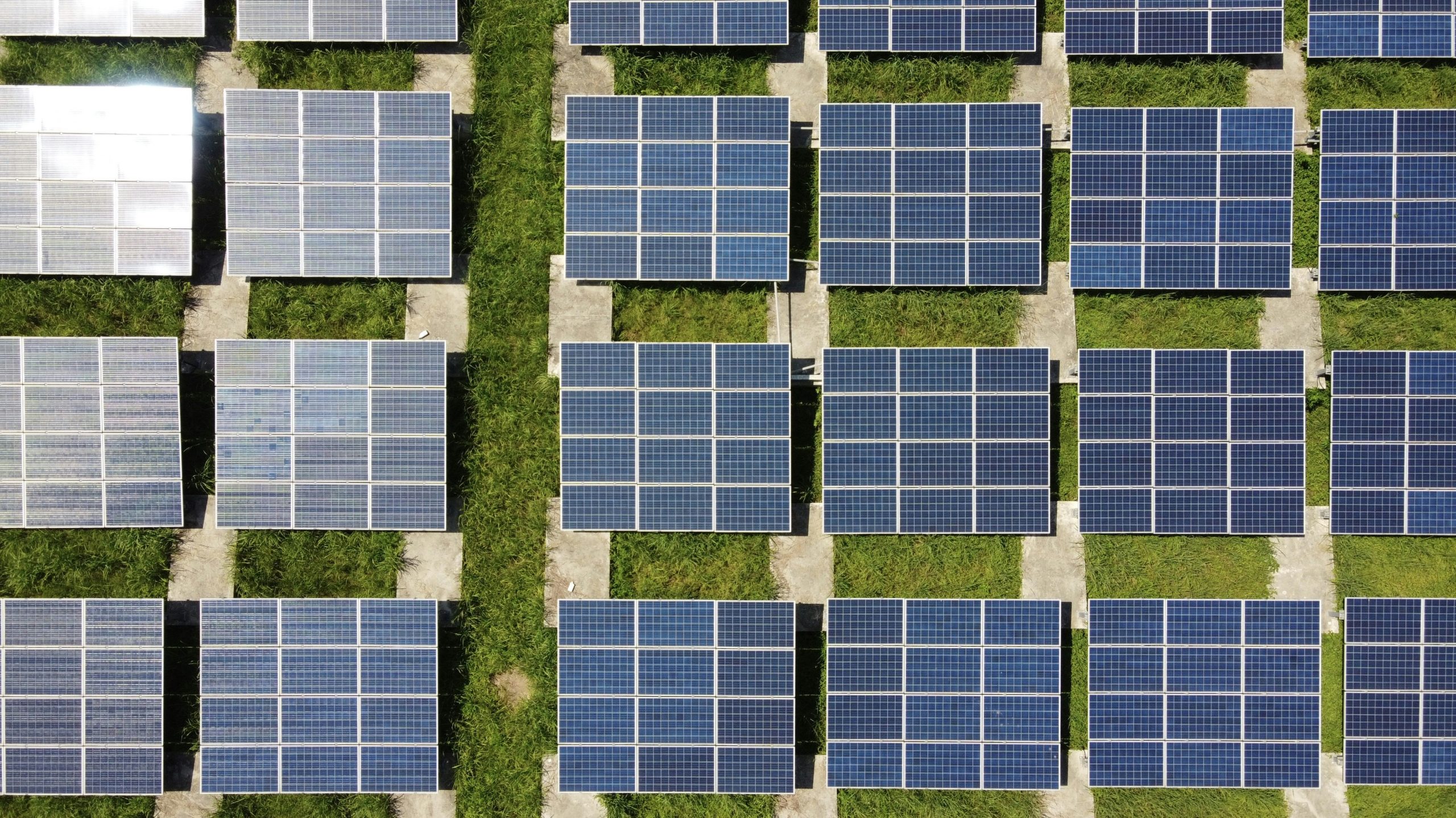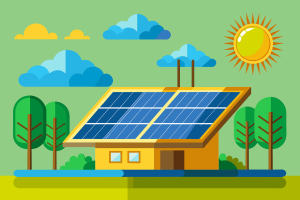Let’s dive into the myriad ways green energy can revolutionize the way we do business! In this article, we’ll explore the significant benefits that adopting green energy can bring to our companies, from cost savings to enhancing our brand image. We will examine the financial incentives available for businesses transitioning to renewable sources, the technological innovations driving this change, and the positive impact on our environment. By the end, we’ll realize how our collective efforts in embracing green energy can ensure a sustainable and prosperous future for all. Have you ever wondered how businesses can benefit from green energy?
In today’s rapidly evolving world, the adoption of sustainable practices is more than just a trend – it’s becoming a crucial element for businesses aiming to remain competitive. Green energy offers a wealth of opportunities for businesses to not only cut costs but also to forge a path towards a healthier planet. Let’s delve into the myriad ways businesses can reap the benefits of green energy, while also contributing positively to our environment.

What is Green Energy?
Green energy, also known as renewable energy, comes from naturally replenishing sources. Unlike fossil fuels, which deplete over time and harm the environment, green energy sources are sustainable and have minimal impact on the planet. Examples of green energy include:
- Solar power
- Wind power
- Hydropower
- Biomass energy
- Geothermal energy
Green energy technologies are proving both economically viable and environmentally beneficial, making them attractive options for businesses of all sizes.
Why Should Businesses Consider Green Energy?
Adopting green energy can offer several immediate and long-term advantages for businesses. Here are some compelling reasons to consider:
Cost Savings
One of the most straightforward benefits of switching to green energy is the potential for significant cost savings. Here’s how we can save money:
- Lower Energy Bills: Solar panels, wind turbines, and other renewable energy installations can reduce or even eliminate electricity costs over time.
- Tax Credits and Incentives: Governments often offer tax credits, rebates, and other financial incentives to businesses that invest in renewable energy.
- Energy Efficiency: Green energy systems are usually more efficient than traditional energy sources, leading to decreased overall energy consumption.
Environmental Impact
Businesses increasingly recognize their role in the ongoing fight against climate change. By adopting green energy, we can:
- Reduce Carbon Footprint: Green energy significantly lowers greenhouse gas emissions compared to fossil fuels.
- Contribute to Sustainability: Using renewable energy aligns with global sustainability goals and showcases a commitment to environmental stewardship.
- Enhance Corporate Social Responsibility (CSR): Companies with strong CSR tend to attract more customers and better talent. Sustainable practices are a crucial component of CSR.
How Does Green Energy Work?
Understanding how green energy technologies operate can help us make informed decisions about which systems to incorporate into our business models.
Solar Power
Solar panels convert sunlight into electricity using photovoltaic cells. These can be installed on rooftops or other suitable locations with direct sunlight. There are several benefits to solar power, including its scalability and relatively low maintenance costs.
Wind Power
Wind turbines harness kinetic energy from wind to generate electricity. These systems are generally more suitable for businesses with access to large open spaces in windy areas. Wind power can be used to supplement other renewable energy systems or operate independently.
Hydropower
Hydropower involves generating electricity by using the flow of water. It’s not as widely adopted by small businesses due to geographical and environmental constraints, but it’s a powerful option for companies located near flowing water sources.
Biomass Energy
Biomass energy is derived from organic materials like wood, agricultural crops, or waste. Businesses can use biomass to produce heat, electricity, or biofuels, offering a versatile way to utilize waste products.
Geothermal Energy
Geothermal energy exploits the heat from beneath the Earth’s surface to generate electricity or provide direct heating/cooling. Although initially expensive to install, geothermal systems offer stable energy and low operating costs.
How to Implement Green Energy Solutions
Implementing green energy solutions in a business setting starts with understanding our specific energy needs and conducting a thorough cost-benefit analysis. Here’s a practical approach to consider:
Assess Energy Needs
The first step is to benchmark current energy usage. We should analyze utility bills, identify peak energy use times, and consider future needs. Understanding our energy consumption patterns will enable us to select the most appropriate form of green energy.
Identify Opportunities
Next, we should identify the green energy technologies that best suit our operational model. This might involve looking into:
| Technology | Best For | Initial Costs | Maintenance Requirements |
|---|---|---|---|
| Solar Power | Businesses with ample sunlight and roof space | Moderate | Low |
| Wind Power | Businesses in windy, open areas | High | Moderate |
| Hydropower | Businesses near flowing water sources | Variable | Low |
| Biomass Energy | Companies generating organic waste | Low-Moderate | Variable |
| Geothermal Energy | Businesses with geothermal access | High | Low |
Explore Financial Incentives
It’s crucial to explore the various financial incentives available. Local, state, and federal programs often offer:
- Tax Credits: Reducing the initial cost burden.
- Grants: Providing funding for renewable energy projects.
- Low-Interest Loans: Facilitating financing for green energy investments.
Develop an Implementation Plan
With the right technology and financial incentives in place, we need a detailed plan for implementation. Considerations include:
- Timeline: Define clear milestones and deadlines.
- Budget: Allocate funds appropriately.
- Stakeholders: Engage key stakeholders to ensure buy-in and support.

Overcoming Challenges in Green Energy Implementation
While the benefits of green energy are substantial, there are challenges to be aware of:
Initial Costs
High upfront costs can be a barrier. However, these can often be mitigated through financial incentives and innovative financing options such as power purchase agreements (PPAs) and leasing models.
Technical Expertise
Implementing green energy technologies often requires specialized knowledge. Collaborating with experienced contractors and consultants can ensure a smooth transition.
Regulatory Compliance
Navigating local regulations and obtaining necessary permits can be complex. It’s essential to stay informed about regulatory changes and work closely with legal advisors.
Energy Storage
One of the key challenges of renewable energy is energy storage. Technologies like batteries can store solar or wind power for use when production isn’t possible, but these solutions can be costly. Investing in reliable storage options ensures a consistent energy supply.
Case Studies: Businesses Reaping the Benefits of Green Energy
Company A: Solar Success
Company A, a medium-sized manufacturing firm, installed solar panels on its factory roof. Over five years, they’ve witnessed a noticeable reduction in electricity bills and received substantial tax credits. Their initial investment was recouped within three years, and now they are enjoying nearly free electricity.
Company B: Wind Wins
Company B, located in a windy rural area, set up wind turbines to complement their energy needs. This initiative not only slashed energy costs but also helped them achieve net-zero emissions. Their commitment caught the attention of eco-conscious customers and investors, boosting both sales and capital.
Company C: Biomass Brilliance
Company C, a food processing plant, converted its organic waste into biomass energy. This not only provided a sustainable energy source but also reduced waste disposal costs significantly. The dual benefits resulted in a healthier bottom line and a positive environmental footprint.

Future Trends in Green Energy for Businesses
The green energy landscape is rapidly advancing, and several emerging trends are set to shape the future for businesses:
Advanced Energy Storage Solutions
Innovations in battery technology are making energy storage more efficient and cost-effective. These advancements promise to solve the intermittency issues associated with renewable energy sources, ensuring a more reliable energy supply.
Microgrids
Microgrids are localized grids that can operate independently from traditional power grids. Businesses adopting microgrids can achieve greater resilience and efficiency, as well as faster recovery from power outages.
Internet of Things (IoT)
The integration of IoT with green energy technologies offers advanced monitoring and optimization. Smart sensors and meters can provide real-time data, enabling businesses to maximize energy efficiency and minimize waste.
Green Hydrogen
Generated through electrolysis using renewable energy, green hydrogen has the potential to revolutionize industries that are hard to electrify, such as heavy manufacturing and transportation.
Measuring the Impact of Green Energy
Quantifying the benefits of green energy is crucial for understanding its overall impact. Here are key performance indicators (KPIs) to consider:
Financial KPIs
- Return on Investment (ROI): Measures the profitability of green energy investments.
- Payback Period: Time taken to recover the initial investment.
- Energy Savings: Reduction in energy costs compared to baseline.
Environmental KPIs
- Carbon Footprint Reduction: Amount of greenhouse gases reduced.
- Energy Efficiency Improvements: Increase in energy productivity.
- Resource Conservation: Savings in water, materials, or other natural resources.
Social KPIs
- Customer Satisfaction: Positive feedback and loyalty from eco-conscious customers.
- Employee Engagement: Increased morale and retention due to sustainable practices.
- Community Impact: Contributions to local sustainability goals and initiatives.

How to Maintain Green Energy Systems
Once we’ve implemented green energy solutions, it’s essential to maintain them properly to ensure long-term efficacy and efficiency.
Regular Inspections
Conducting regular inspections helps identify potential issues before they escalate. Checking for wear and tear, alignment, and operational efficiency keeps the system running smoothly.
Scheduled Maintenance
Adhering to a scheduled maintenance plan can extend the lifespan of green energy installations. For example, solar panels should be cleaned regularly to ensure maximum sunlight absorption.
Professional Servicing
Engaging professional technicians for periodic servicing and upgrades ensures that our systems stay up-to-date with the latest technological advancements and regulatory standards.
Conclusion
As we navigate the challenges and opportunities in today’s business landscape, the shift towards green energy emerges not just as a sustainable choice but a strategic one. With clear benefits in terms of cost savings, environmental impact, and enhanced corporate social responsibility, green energy enables businesses to stay competitive while contributing to a healthier planet. By understanding the various green energy technologies, implementing strategic solutions, and overcoming potential challenges, we can position our business for a prosperous and sustainable future.
Incorporating green energy is not just a commitment; it’s a strategic investment that reaps rewards across multiple dimensions. The time to leverage green energy for business growth and environmental stewardship is now. Let’s join hands and embark on this journey towards a greener, more sustainable future.
So, how can businesses benefit from green energy? The answer is clear: profoundly and extensively. And it’s a journey we should all be eager to take.




